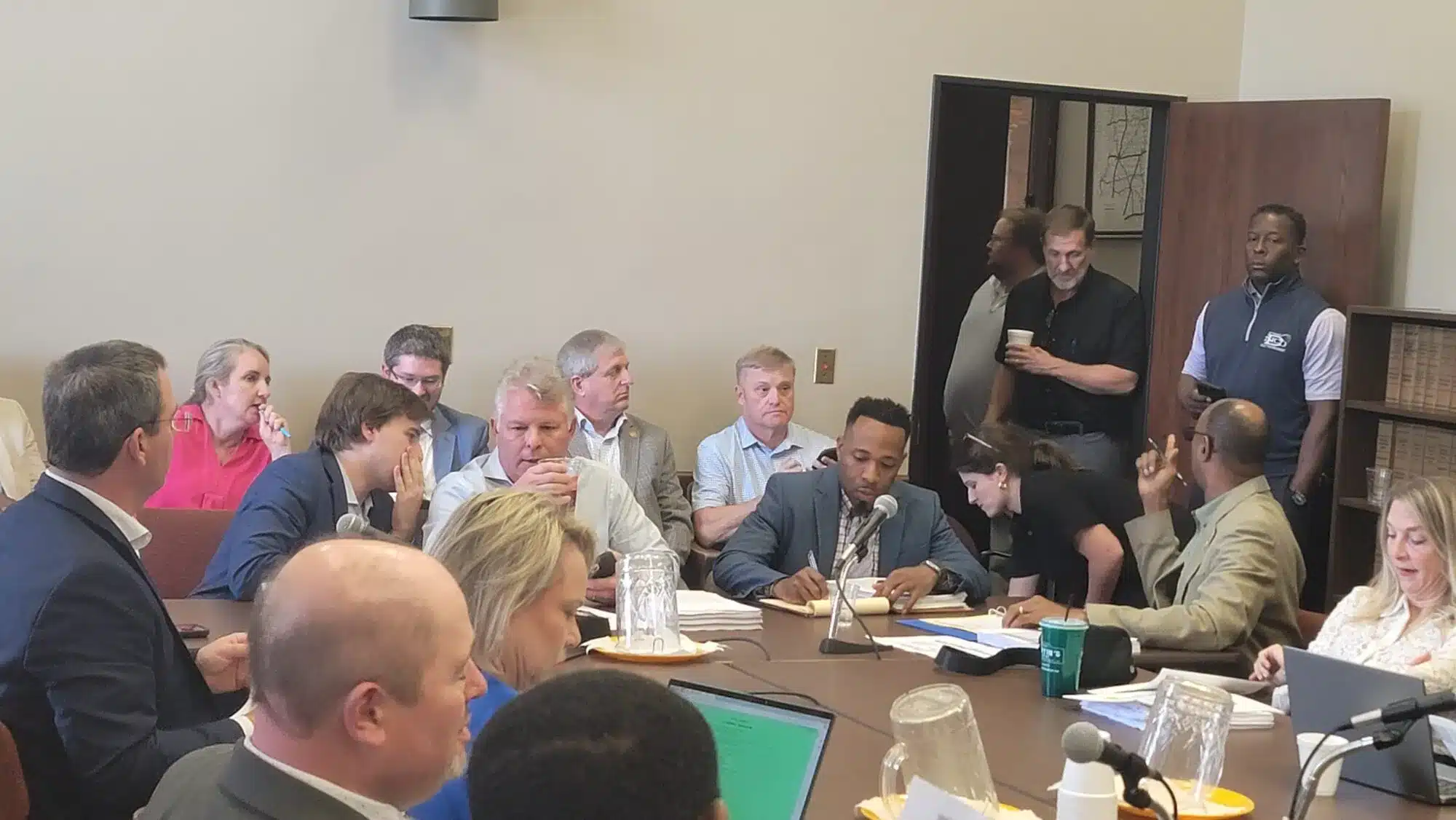This article first appeared on the Magnolia Tribune.

Members of the House of Representatives Education Committee gather Friday afternoon to take up a new education funding bill, HB 4130.
Photo by Jeremy Pittari | Magnolia Tribune
- The new K-12 funding formula is the culmination of work between both the House and Senate. If signed into law, it would replace MAEP.
On Friday afternoon, the Mississippi House of Representatives unanimously passed a new K-12 education funding bill, HB 4130.
The move comes after both chambers passed suspension resolutions allowing lawmakers to consider the bill as well as legislation regarding PERS despite the prior deadline.
The new bill, titled the Mississippi Student Funding Formula, will now be considered by the Senate to replace MAEP.
Speaker Jason White (R), and by extension the House, has been resolute in the desire to see MAEP replaced this session. The House was prepared to let education funding die, forcing a possible special session, if the Senate did not agree to negotiate the House plan.
Like the previously considered House INSPIRE Act and the Senate’s proposed tweaks to MAEP, this new formula is estimated to provide more K-12 funding than in previous years – nearly $218 million.
However, the bill does not include teacher pay raises, said State Rep. Kent McCarty (R), vice chair of the House Education Committee.
The base student cost will increase by $45 over the proposed amount in the INSPIRE Act, bringing the total to $6,695.
Like the INSPIRE Act, this new formula will employ the weighted system aimed at helping those districts with a lower tax base and accounting for specific student needs, such as special education students, English language learners, and districts with sparse student populations.
Rep. Rob Roberson (R), the author of the bill and chair of the House Education Committee, said the new formula includes a hold harmless component that will last until the 2027 school year. This means lower tax base districts will not see less funding than they received in the current fiscal year during that time.
“We don’t want to harm them; our intentions are not to reduce money for them. Our intentions are to make certain that future monies are going to districts that need it because they don’t have a tax base,” Roberson told Magnolia Tribune Friday morning before the bill was discussed in committee.
This legislation was a culmination of work between the House and Senate, Roberson added.
With the legislation now heading to the Senate, a statement from Lt. Governor Delbert Hosemann (R) after the House passed the bill 113-0 indicated that his chamber is likely to pass the “compromise proposal.”
“In the past several years, we have seen our schools and students achieve so much. The Legislature has significantly raised teacher pay, addressed teacher workforce shortages, and increased funding for early education. The Senate’s past work on school funding and the compromise proposal we will hopefully pass this year is the next logical step,” Lt. Governor Hosemann said in a statement after the bill’s passage on the House floor. “We are grateful to Chairman Dennis DeBar for his commitment to Mississippi students and to transparency as we examine this formula’s implementation in the future.”
This article first appeared on the Magnolia Tribune and is republished here under a Creative Commons license.
Read original article by clicking here.

